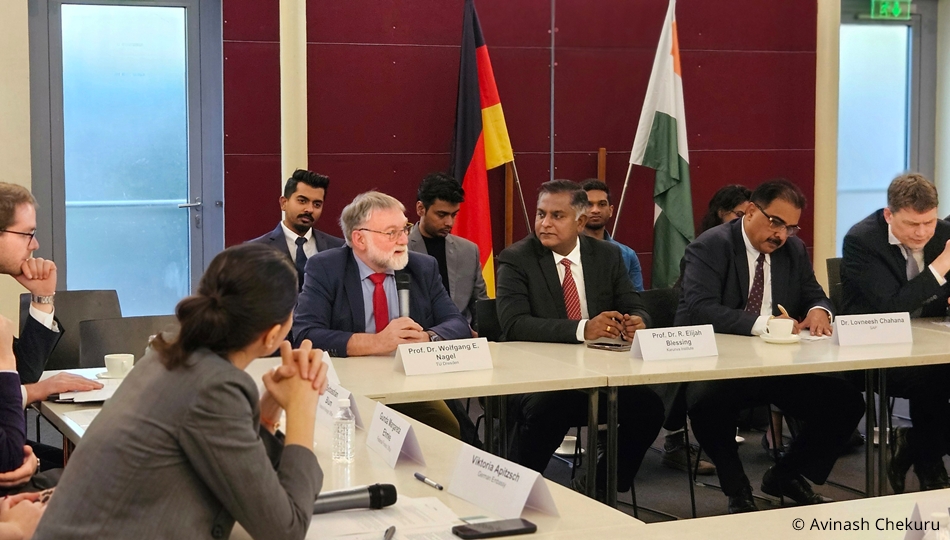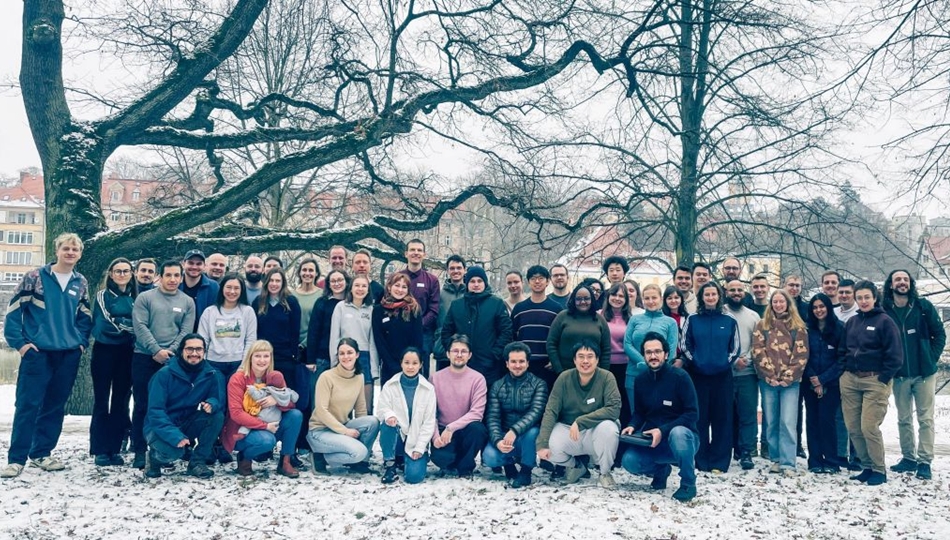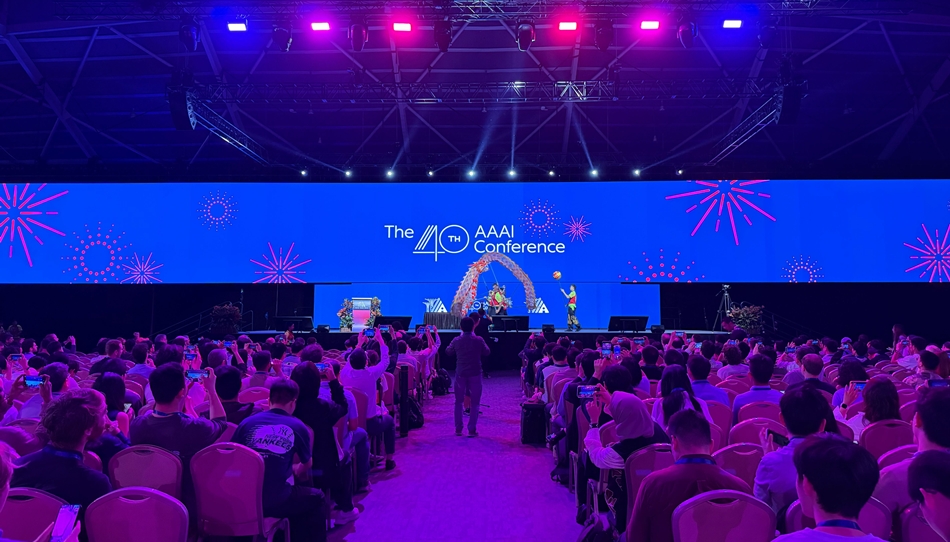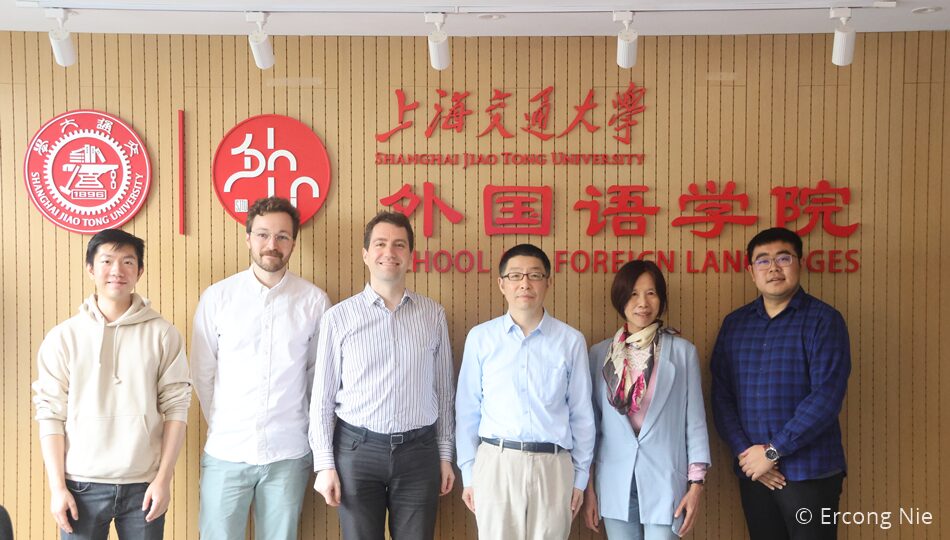
November 17, 2025
AI Research Meets Practice: Prof. Michael Färber Visits China

How can AI shape the production of tomorrow and open up new avenues in academic research? From October 30 – November 11, 2025, a delegation around Prof. Michael Färber (Chair of Scalable Software Architectures for Data Analytics) visited China to address these exact questions. They stopped at the Shanghai Jiao Tong University, the Huazhong University of Science and Technology (HUST), and XENON Automation Technology. Furthermore, they joined the 2025 Conference on Empirical Methods in Natural Language Processing (EMNLP 2025) in Suzhou, China. The visit fostered valuable opportunities for academic and industrial exchange.
Academic Exchange at Shanghai Jiao Tong University
On the afternoon of November 3, 2025, Prof. Färber visited the School of Foreign Languages at Shanghai Jiao Tong University. He met with Vice Dean Tao Qing, Professor Xue Yuan from the Department of German Studies, and Professor Ding Hongwei from the Department of English Studies. During the meeting, he shared the latest progress of his team in the areas of academic text retrieval, language simplification, and how people process language using large models. This work aims to improve research in the digital humanities.
The team from Shanghai Jiao Tong University introduced their research in speech and multimodal intercultural communication. They shared the history of their German Department, faculty, student programs, and their international exchanges. Both sides saw potential for future collaboration and discussed concrete opportunities, such as:
- joint teaching and research formats,
- exchange programs for students and researchers,
- block seminars, and
- summer schools.
Vice Dean Tao emphasized that collaboration could extend beyond German studies to other disciplines, giving students broader interdisciplinary opportunities. Prof. Färber expressed strong interest in deepening these connections. He agreed to expand cooperation at the college level, building on existing university frameworks. Find the article by Shanghai Jiao Tong University here.
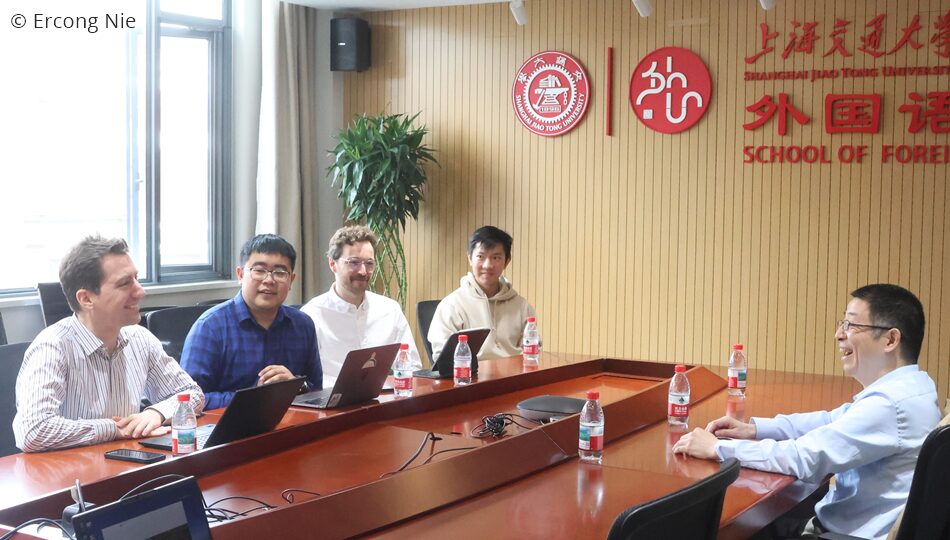
Invited Talk at Huazhong University of Science and Technology (HUST)
The Huazhong University of Science and Technology (HUST) in Wuhan, China invited Prof. Färber for a guest talk on October 30, 2025. The organization lay with Distinguished Professor Rui Zhang from the School of Computer Science and Technology at HUST. Prof. Michael Färber was joined by his PhD students Shuzhou Yuan and Nicholas Popovič from TU Dresden / ScaDS.AI Dresden/Leipzig, and Ercong Nie from LMU Munich / Munich Center for Machine Learning (MCML). The talk, announced university-wide and delivered in English, drew a large audience of students and researchers. It focused on the latest research on large language models, information retrieval, and trustworthy AI. A particular focus was placed on the traceability and citability of AI systems.
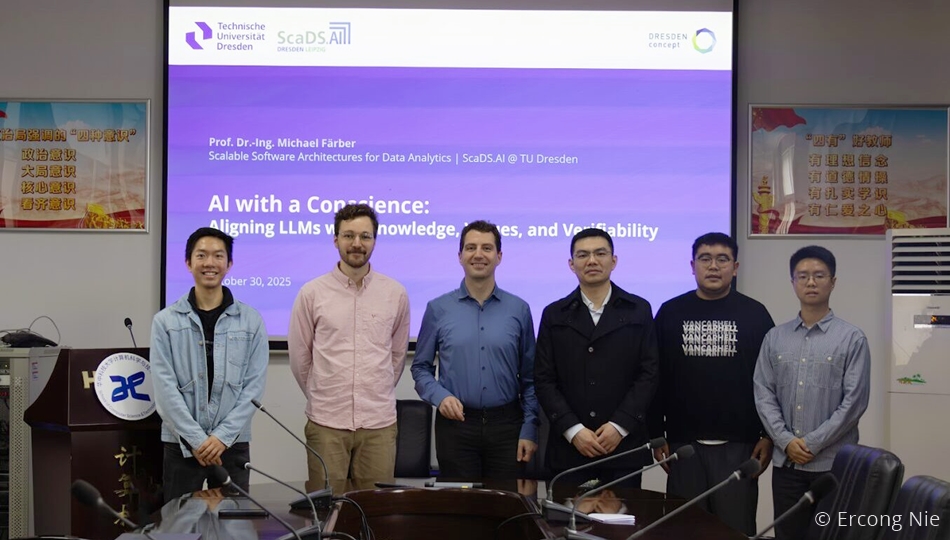
Visiting XENON Automation Technology (Suzhou)
Amid the global momentum of AI-driven industrial automation, an academic-industry exchange took place at Xenon Automation Technology in Suzhou, China. Led by Prof. Färber, the delegation visited Xenon’s production facility. There, they engaged in in-depth discussions around how AI technologies can address key challenges in manufacturing automation.
During the visit, the delegation toured Xenon’s production facility, observing the full process from precision assembly to intelligent inspection. Under the leadership of technical expert Martin Schiffner, Xenon is advancing its AI + Smart Manufacturing strategy by integrating AI into key stages of production and quality control. “Xenon’s ability to integrate AI technologies into industrial settings aligns closely with our frontier research agenda,” noted Prof. Färber.
In a subsequent discussion, both sides focused on core automation scenarios and exchanged ideas on how AI can enhance efficiency, reliability, and human–machine collaboration. “AI is not a substitute for humans; it amplifies human capabilities,” emphasized Prof. Färber. “Our goal is to free engineers from repetitive tasks and enable them to focus on higher-value innovation.” The Xenon General Manager Tingting Hu added, “With ScaDS.AI Dresden/Leipzig’s academic strength and Xenon’s industrial experience, we form a perfect complement. We look forward to turning advanced AI technologies into real-world productivity.”
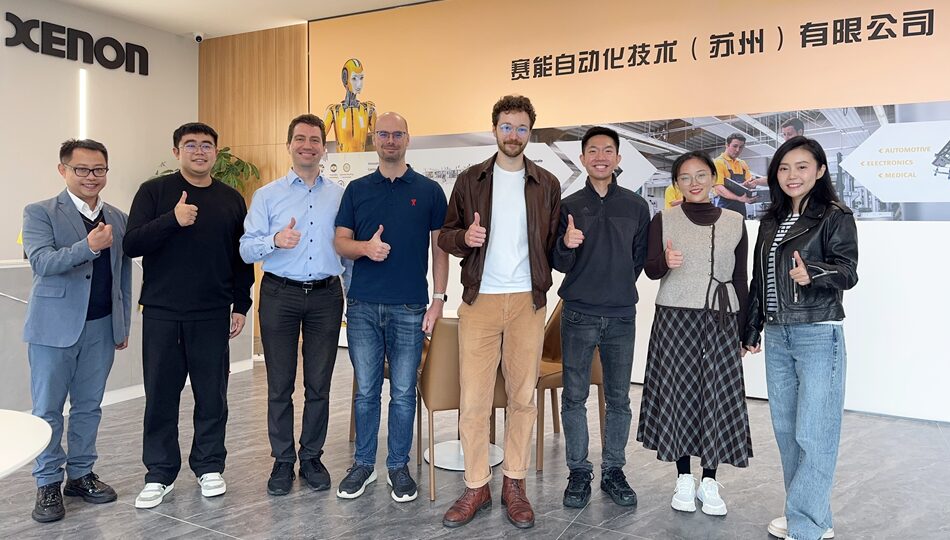
Outlook
The visit provided a valuable platform for connecting academic research with industrial practice, underscoring our commitment to advancing AI applications across diverse domains.

